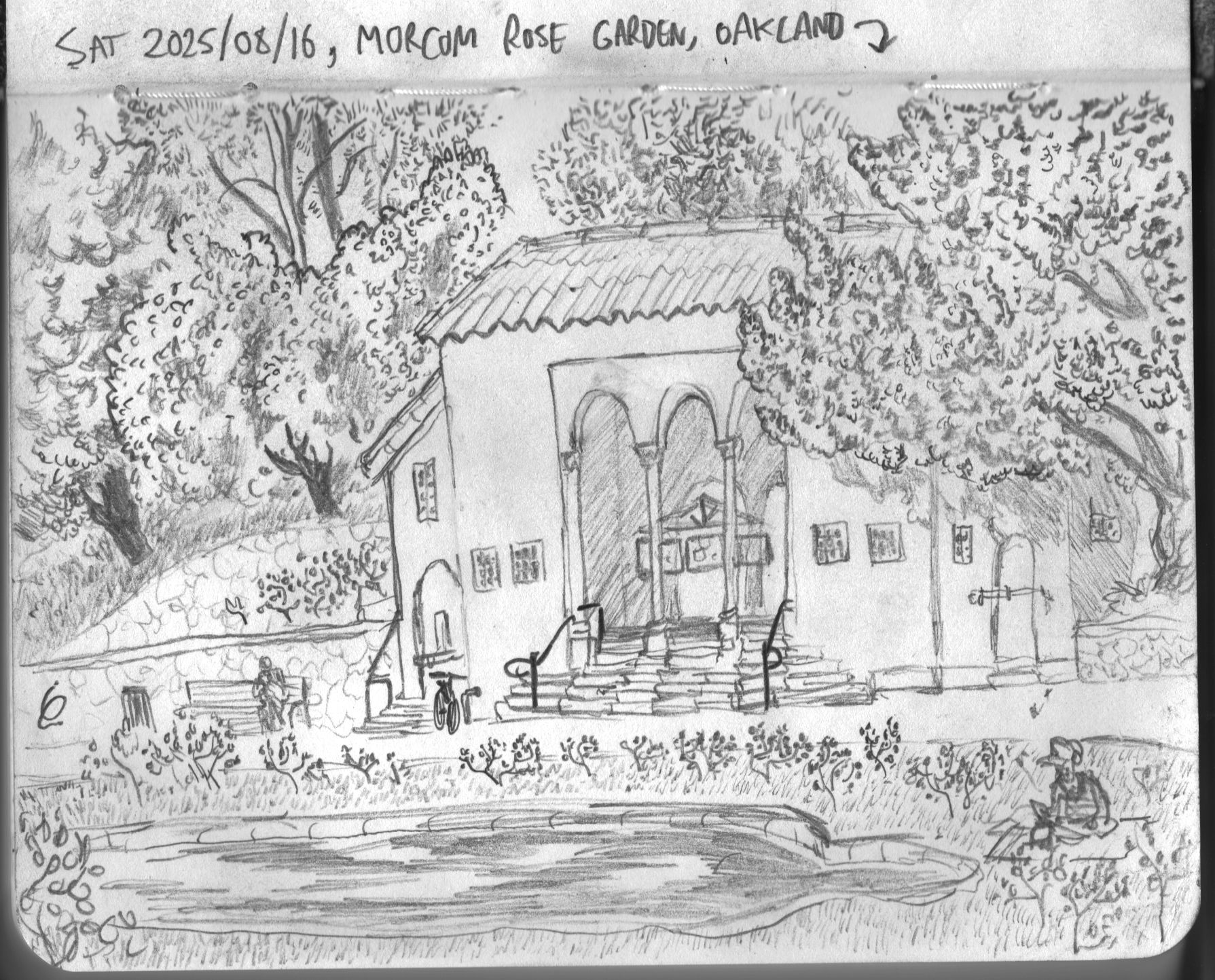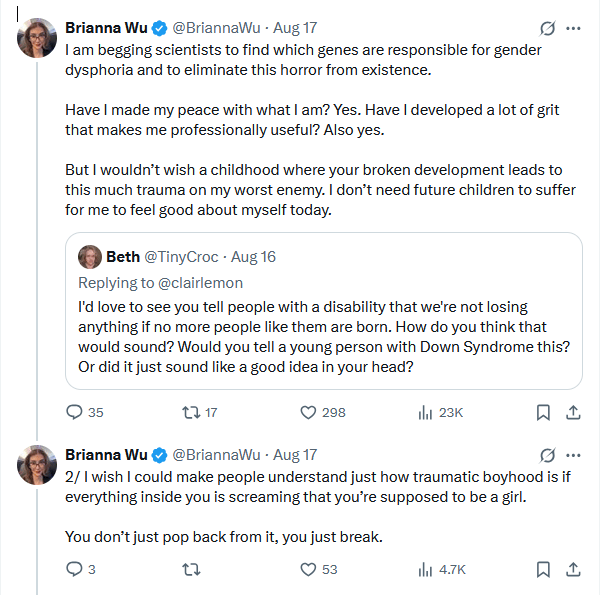- iosphere
- Posts
- #5: Honey, are you okay?
#5: Honey, are you okay?
On Brianna Wu's bizarre call for trans eugenics, and the difference between trauma and mere misfortune.

Pencil sketch of the Morcom Amphitheater of Roses
When I was a little girl, round about the time puberty started, my performance at school began to slip.
The reasons were mysterious. I had no idea why previously normal tasks suddenly seemed so difficult. Still, I felt sure that no adult could possibly understand or help. This was my burden to bear, alone.
Then one day, a teacher thought to ask the obvious question. "Hey, █████," they said, with puzzlement. "Can't you read what's on the board?"
That, dear reader, is the short and uneventful story of how I got my glasses. And it helps explain why I have so little patience with my fellow trans woman Brianna Wu's call for our people to be wiped from existence.
But first: the headlines!
Last month, a campaign against sexually violent videogames by a small Australian anti-porn group somehow snowballed into a sweeping, indiscriminate purge of adult content. I spoke to experts and creators of horny videogames about how and why it happened.
Milo Youngblut, the non-binary vegan who got into a gunfight with federal agents in Vermont this January, is now facing the death penalty — on the specific orders of Donald Trump’s attorney general Pam Bondi.
Anyway, who is Brianna Wu? It would be quite reasonable, and perhaps fortunate, to not recognise her name.
Put briefly, Wu is a 46-year-old videogame developer, Democratic activist, and inveterate online poster who made her name as a feminist opponent (and target) of Gamergate back in 2014. More recently she has carved out a niche for herself as a "moderate" trans woman (a word she uses often) who agrees with many right-wing critiques of “trans activism” — although she only admitted publicly that she was trans in late 2024.
On Sunday Aug 17, she was at it again. "I am begging scientists to find which genes are responsible for gender dysphoria and to eliminate this horror from existence," she posted on X.
"Have I made my peace with what I am? Yes. Have I developed a lot of grit that makes me professionally useful? Also yes. But I wouldn’t wish a childhood where your broken development leads to this much trauma on my worst enemy.... you don’t just pop back from it, you just break."

There are many things one could say in response to this statement. For example: Oh my God. Honey. Sweetie. Are you, like, okay? Do you need support? Blink twice if you're trapped in the Sunken Place. Or: Big deal, girlie. So you feel broken? Join the fucking club, learn the traditional Japanese art of kintsugi like the rest of us, and stop channelling your pain into fantasies of trans elimination.
What most comes to mind, though, is that story about getting glasses. It's something I've thought about often as I grow older and wiser: not because it traumatised me, but because it didn't.
True, gradually losing my long-distance vision without knowing what was happening was a worrying and disorienting experience. Yet the adults around me had the knowledge to spot the problem early, and procedures in place to fix it, without making me feel helpless or crazy or broken.
Now consider my experience with autism, which some people also wish to eliminate at birth. That trait was misunderstood and denigrated by the culture I grew up in, leaving me systematically (and traumatically) deprived of the power to recognise or care for it until my late twenties. To me, this contrast is a vivid argument for the social model of disability, which argues that it's actually society's failure to accommodate bodily variation which transforms mere impairment into disability.
Bad things happen to children all the time. We get sick, we get in fights, we lose pets or friends. Some of these scar us forever, while others only leave bruises. Simple severity must play some role in deciding which is which, but I think it also matters a lot how our caregivers respond. A cry for help that's heard and heeded hurts far less than one silenced and ignored.
Medical research provides some evidence for this in the case of trans children — much as the UK's flawed Cass Review tried to minimise it. Multiple studies have found that trans people who started hormones early had better mental health and less suicidal ideation. Social transition that is affirmed and supported by one's community similarly appears to reduce suicide attempts.
What I'm trying to say is that it's not the dysphoria that kills us, hon; it's the denial. It’s the pan-societal suppression of any answer to our suffering: the incessant gaslighting insistence that changing our sex through the miracle of modern medicine is neither possible nor permissible.
The obvious solution — let trans kids transition — is one that Wu says she supports, albeit with more restrictions. So I really have no clue how she got from there to advocating the complete eradication of transness via eugenics (ie, arguably genocide).
Personally I am proud and happy to be trans, just as I am to be autistic. Were I more religious I would thank the Goddess for making me this way. This stance is possible because I have a community and a philosophical framework that lets me separate my transness from my trauma, and see the former as something beautiful and deserving of life; that lets me believe transness need not be traumatic, now or ever again. By such means are broken things mended, cracks and all.